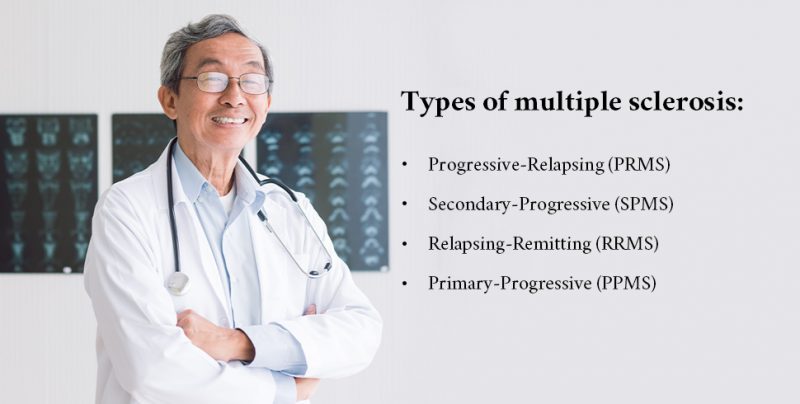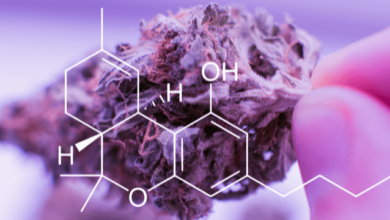
A full and comprehensive guide to using CBD for multiple sclerosis. Including a breakdown of the health benefits, side effects and most effective methods of consumption.
Cannabidiol (CBD) has gained so much notoriety over the past few years for its seemingly endless medicinal benefits. You can find a vast number of articles from different sources declaring a range of different properties and benefits from CBD use and it can sometimes be hard to differentiate fact from fiction.
In this article, we aim to clear up the facts about using CBD for multiple sclerosis in a clear and concise guide. We will present all the facts needed to make an informed decision before opting to use CBD oil for MS.
Table of Contents
What is multiple sclerosis?
Multiple Sclerosis, or MS, is an autoimmune disease that causes the body’s immune system attacks its own central nervous system (CNS). Believed to be caused by a combination of genetic and environmental factors, MS is an extremely debilitating disease that gets progressively worse over time.
There are 100,000 suffers of MS in the UK with over 5,000 people being diagnosed with the condition every year. This means every 1 in 600 people has or will develop MS in the UK.
Sufferers of MS experience a wide variety of symptoms from pain, shaking, tiredness, and inflammation which results in reduced physical activity, impaired motor function and generally reducing the patients’ quality of life.
Types of multiple sclerosis
The nerve fibres of the human body’s nervous system are surrounded by a protective coating, called the myelin sheath. With MS, this protective layer becomes damaged as the immune system attacks it, leaving the nerve cells exposed and scarred. A variety of resultant symptoms arise that can be differentiated into four main categories.
Progressive-Relapsing (PRMS)
The rarest form of multiple sclerosis, accounting for 1 in 50 cases. The disease gradually gets worse over time and flares up in distinct attacks, called relapses. Following these attacks, the chance of full recovery is uncertain.
Secondary-Progressive (SPMS)
Most people diagnosed with RRMS will eventually progress to SPMS. With SPMS, the symptoms gradually get worse between flare-ups with or without relapses occurring. It used to take 20 years for RRMS to develop into SPMS, but modern medicine is constantly lengthening this time.
Relapsing-Remitting (RRMS)
The most common form of multiple sclerosis, accounting for 8 out of 10 cases. This is the least debilitating form of MS and people are commonly diagnosed in their 20s or 30s. With RRMS, relapses occur where the symptoms flare up, followed by long recovery times where there are few-to-no symptoms at all.
Primary-Progressive (PPMS)
Responsible for around 10% of MS cases, PPMS involves the symptoms progressively worsening from the onset of the disease, without the need for flare-ups or remissions.
The boundaries between the different types are for medical classification purposes and there is potential room for overlap between them. Two people with the same type of MS are unlikely to experience exactly the same symptoms in the same manner.
CBD oil for MS – How does it help?
Multiple MS studies and research have shown that CBD helps to lessen or even eradicate seizures associated with multiple sclerosis whilst also minimising pain and inflammation caused by the condition. Depression and general fatigue are also shown to be alleviated with CBD. The combined overall effect of having these symptoms of MS eased results in an overall increase in patient mobility and therefore increases quality of life.
In the UK, CBD and cannabis is available for prescription from the NHS service in the form of a pharmaceutical-grade oil called Sativex. This contains a 1:1 ratio mix of CBD and THC. Information provided on the NHS website shows that Sativex is only to be prescribed when all other avenues of medication have been exhausted because of economical reasons.
Most conditions that CBD is beneficially associated with suffer from a lack of clinical studies backing its use for that condition. MS has no such problem, and the scientific evidence behind using CBD to combat the symptoms of MS has resulted in CBD being officially listed as appropriate medication by the health services in the UK, the USA, Canada and other countries worldwide.
Side effects of CBD oil
The side effects of CBD are experienced in a very small number of people and are often very minor. The benefits of using CBD for multiple sclerosis outweigh the side effects in almost all cases. However, they are certainly a factor to consider before consuming CBD for MS.
The main side-effects observed from CBD are : –
- Diarrhea
- Changes in appetite
- Nausea
- Dizziness
- Fatigue
CBD also has the potential to interact with other common prescription medications prescribed by your GP. It is especially important that speak to your GP if you intend to start consuming CBD for MS if you are on any other types of medication.
Best ways to take CBD oil
CBD is available to be consumed in multiple different ways, each with their own associated pros and cons. Different methods of consumption have different bioavailabilities, which is the amount of CBD that enters the bloodstream.
The most common methods of consuming CBD for multiple sclerosis are: –
Tinctures
CBD that is placed in a carrier oil or other liquid that is designed to be placed under the tongue for several minutes. The CBD is absorbed into the bloodstream without subjecting it to enter the digestive tract. The resultant effects felt within 10 minutes and with high bioavailability.
Tinctures are the most common way of consuming CBD worldwide and particularly for MS because the results are felt quickly and are relatively long-lasting.
Vaping
CBD that is vaporized in an e-cigarette or vape pen. You can either vaporize cannabis buds that are high in CBD or vape CBD that has been extracted into an e-liquid.
The results of vaping CBD are almost instantaneous with the majority of the CBD being absorbed into the bloodstream within 10 minutes and with a high bioavailability. However, the effects don’t last as long as other methods because the body metabolises it quickly.
Vaping CBD for multiple sclerosis is less common than tinctures but not unheard of. It is generally used in combination with tinctures for people who suffer severe symptoms than need instantaneous relief.
Edibles and bulk capsules infused with CBD
CBD can be extracted and placed into capsules or in food and drink for consumption, such as gummies or brownies. The CBD enters the digestive tract resulting in the effects taking up to two hours before being felt by the user.
Edibles are quite an uncommon method of consumption for medicinal use because it has a very low bioavailability, with estimates showing only 20% of the CBD enters the bloodstream.
There are many other ways to consume CBD, including smoking CBD and using CBD topicals. However, these are uncommon for use medicinally or are not generally recommended due to side-effects.
Is there a risk to taking CBD oil for MS?
There are no official risks released by the NHS or the World Health Organisation (WHO) regarding taking CBD for MS. It has no propensity for abuse or to be taken recreationally and has no known overdose limit.
However, popular treatments for health services worldwide for MS use a CBD-based medication called Sativex, which also contains the main intoxicating constituent of cannabis, tetrahydrocannabinol (THC). This does carry health warnings due to the psychoactive nature of THC which has been linked with the onset of psychosis in individuals who are predispositioned to condition.
If consuming medication that contains THC for the symptoms of multiple sclerosis causes feelings of paranoia, anxiety, depression or any other mental health concerns, then it is advised to contact your GP immediately.
CBD oil for MS dosage guide
CBD for multiple sclerosis has gone through clinical research trials to determine the effective doses for the reduction of symptoms. The results have shown that the effective dose varies from person to person and because the prescribed medication also contains THC, it is recommended that the dosage is increased over a two week period due to its intoxicating nature.
Sativex contains a 1:1 ratio of CBD/THC and each spray contains approximately 2.5mg of each.
The daily dose of Sativex should be increased from 1 spray on day 1 (2.5mg of CBD / 2.5mf of THC) to a maximum of 12 sprays on day 14 (30mg of CBD / 30mg of THC). The average dose in clinical trials for the treatment of the symptoms of MS is 8 sprays (20mg of CBD / 20mg of THC) and it is recommended that dosages greater than 12 sprays are not exceeded on a daily basis.
What is CBD oil?
CBD is short for cannabidiol, which is a compound found exclusively in the cannabis plant. CBD is heralded in the media for its health benefits, ranging from anti-anxiety and depression to chronic pain and different auto-immune diseases.
When extracted from cannabis, CBD can be placed into a number of different mediums for human consumption, from CBD oil to be taken sublingually to CBD vape oils to be inhaled. It is a non-intoxicating substance, so it won’t get you ‘high’ or ‘stoned’ and has no overdose limit or propensity to be abused recreationally.
Conclusion
If you are considering consuming CBD for the symptoms of MS, then it is always recommended that you speak to your GP prior to using medication. However, in the UK the NHS have been steering people away from the use of cannabis-based medication due to high expense. As a result, anecdotal stories and blogs on the internet have reported that people are opting to self medicate.
If you are keen to give CBD oil or any cannabis-based product a go for multiple sclerosis, then a close eye should be kept on how it helps your symptoms. It is recommended that a daily diary is kept that records: –
- The dosage taken and what times;
- The benefits felt (what symptoms have been alleviated);
- Any side effects suffered.
If improvements are shown then you may choose to continue treatment and if there is no change or a worsening of symptoms, you may consider an alternative method of treatment.






